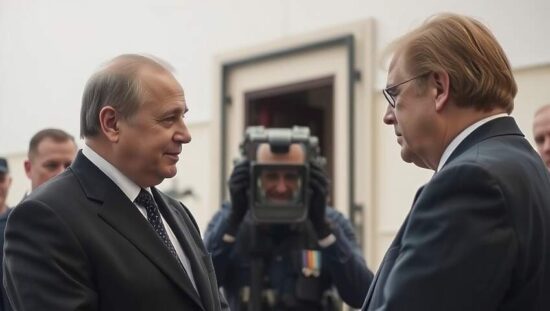Berlin – In a phone call on Sunday, German Chancellor Friedrich Merz (CDU) and Israeli Prime Minister Benjamin Netanyahu engaged in discussions centered on the fragile ceasefire in Gaza and the escalating humanitarian crisis. The conversation, confirmed by government spokesman Stefan Kornelius, underscored a growing pressure on Netanyahu’s administration to facilitate a more sustainable resolution to the conflict.
While both leaders publicly affirmed a shared objective of stabilizing the ceasefire, the tenor of the exchange, as relayed by Kornelius, hints at underlying tensions regarding the implementation of that objective. The emphasis on ensuring “safe and sufficient” humanitarian aid reaching Gaza signals a potential divergence in perspectives on the current distribution channels, widely criticized by international aid organizations as inadequate and obstructed. Concerns remain about the role of Hamas in controlling the flow of aid and the potential for diversion.
Beyond humanitarian access, the call also addressed the contentious issue of the remaining hostages held by Hamas. Merkel’s insistence on the “immediate” handover of the remains of the last hostages highlights Germany’s firm stance on this critical demand. While the joint statement presented a unified front, observers note that the phrasing avoids explicit condemnation of Hamas’s continued captivity of the remains, a point that has drawn criticism from opposition parties within Germany who accuse the CDU of softening its rhetoric.
The timing of the call is also significant. It follows mounting pressure on the German government to take a more assertive role in mediating between Israel and Hamas, particularly as the potential for a renewed military escalation remains high. While Germany’s unwavering support for Israel’s security remains a cornerstone of its foreign policy, a growing chorus of voices, both within the Bundestag and internationally, is calling for a greater emphasis on protecting civilian lives in Gaza and pushing for a clear roadmap towards a long-term peace. The Merkel-Netanyahu conversation, therefore, represents a delicate balancing act as Germany navigates a volatile geopolitical landscape.





